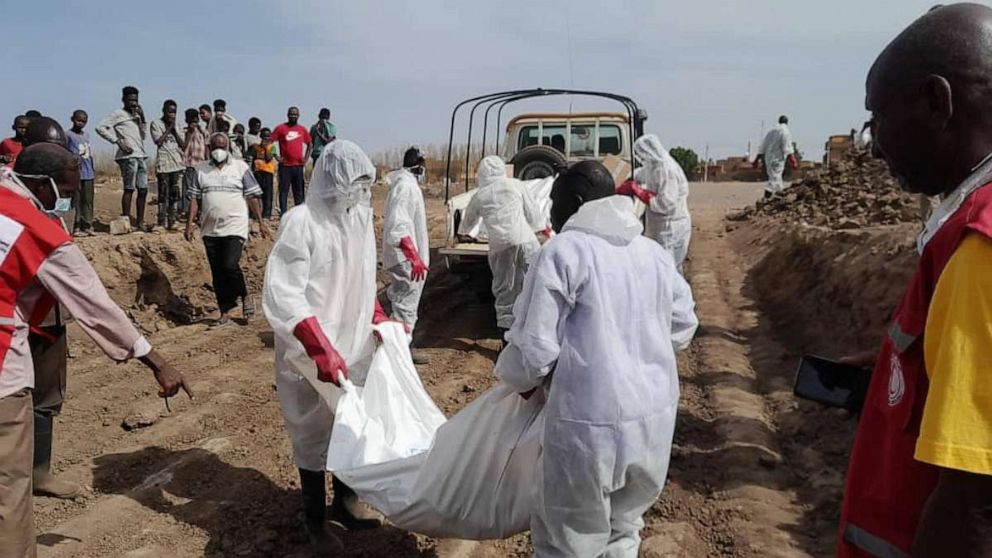
Sudan: Corpses a Environmental and Legal Concern
Mashaeir Idris
In several states in Sudan, the sight of corpses scattered in the streets has become a familiar and logical consequence of the ongoing conflict between the army and the Rapid Support Forces since mid-April.
The Federal Health Minister of Sudan, Dr. Haitham Mohammed Ibrahim, expresses concern about the deteriorating health and environmental conditions, particularly in Khartoum and Darfur, which are experiencing the rainy season. He also announced that 1,500 civilians have been killed and 6,000 injured as a result of the war.
Other reports suggest that there are stacked corpses, approximately 3,000 bodies, spread in mortuaries in Omdurman, Academy, and Bashayer.
The Health Minister does not rule out that the actual number of casualties may be higher than reported due to the difficulty of reaching hospitals or mortuaries in the current situation.
Human rights organizations state that the wars victims in Sudan may exceed three thousand dead and thousands injured.
Dozens of citizens have been forced to bury their loved ones in homes, public roads, squares, and neighborhoods, as it has become impossible to reach cemeteries due to ongoing battles.
The Chairperson of the Central Committee of Health Officers in Sudan, Heba Al-Maki, warned of environmental risks resulting from bodies decomposing in the streets, including those of military personnel.
Al-Maki suggested that environmental problems may arise because of the bodies remaining in their locations, especially as some have begun to decompose, requiring handling according to public health emergency protocols.
She pointed out that waste transportation services have stopped due to security conditions during the autumn season, leading to the accumulation of rainwater that directly contributes to the breeding of disease vectors. She also noted the suspension of activities related to combating epidemic diseases such as malaria and dengue fever, which poses risks to citizens health.
Al-Maki expressed concerns about the deteriorating living conditions in various displacement locations due to overcrowding and lack of basic services like water and toilets. This could lead to expected diseases such as skin infections, respiratory infections, and vector-borne diseases.
She revealed the serious effects of explosive remnants and weapons debris, as well as an increase in harmful gases in the air due to various fires, which need to be measured to assess their impact on the environment and human health.
Statistics indicate that for every person who dies in the war, there are nine others who die as a result of war-related complications.
The United Nations reports that 80% of healthcare facilities in Sudan have ceased operations due to bombardment, forced evacuation, and a shortage of medical supplies.
In the same context, legal advisor Osman El-Basri stated that the war has created legal issues regarding the corpses left in the open and buried without following legal procedures.
He added that the Burying Without Justice Campaign continued its efforts in March to bring an Argentine team to Sudan to exhume the bodies through an international protocol that safeguards the rights of victims.
El-Basri pointed out the forensic medicines opposition to the visit of the Argentine team, in addition to the procrastination of the Ministry of Foreign Affairs, the Attorney General, and the relevant authorities in general. He described it as a lack of will to assist the teams visit.
He said that burying and the decomposition of bodies waste the rights of victims in terms of proving their unlawful killing, which requires evidence in courts, including autopsy reports that are currently unavailable. He also mentioned that the number of missing persons was significant, and if mortuaries were operated with monitoring and the preservation of samples, photographs, and belongings of the deceased, it would have facilitated the process of determining the fate of the missing persons.
As a result of not taking these steps, the rights of the victims will be lost.

